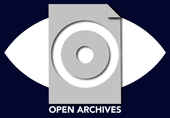Applied research in the qualification of teaching practice
DOI:
https://doi.org/10.15332/erdi.v3i2.459Keywords:
quality education, Teacher training, applied research, action research, teaching practiceAbstract
The changes mark the course of the 21st century, leading to determine the quality as a bellwether for global positioning, regional and local echoing this, education systems consider evidence that diagnostic census half the quality of education, but also provide a comparative resource best education systems, educational institutions, public and private sectors, urban and rural contexts. What determines the quality of the best education systems? , The first factor is the cultural foundation of the family and teacher training as a determining factor. A consolidated teacher training to conduct research from the field of performance the classroom. In correspondence with the above stated, the article initially refers to the best education systems according to the PISA results, what are the selection criterion to the teaching profession, at once considered the UNESCO document (2012 ) "Background and criterion for the development educational politics in Latin America and the Caribbean" to show some features of teacher education and critical aspects in the national context continues taking as the source document MEN (2012 ) "Politics and Colombian system of training and professional development." A second part presents the research as one of the pathways in the formation and quality of teachers, closes the article with some experiences in teacher education programs offered by the School of Education at the Universidad Industrial de Santander.
Downloads
References
Barber, M. & Mourshed, M. (2008). Cómo hicieron los sistemas educativos con mejor desempeño del mundo para alcanzar sus objetivos. Chile. Programa de Promoción de la Reforma Educativa en América Latina y el Caribe. Disponible en: http://www.oei.es/pdfs/documento_preal41.pdf
Cerda, H. (2008). El proyecto de aula. Bogotá, Colombia: Magisterio.
Elliott, J. (1993). El cambio educativo desde la investigación acción. (3ª ed.) Madrid: Morata
Elliott, J. (2010). El “estudio de la enseñanza y del aprendizaje”: una forma globalizadora de investigación del profesorado. Revista Interuniversitaria de Formación del Profesorado, 68 (24,2), 223-242. Disponible en: http://www.aufop.com/aufop/uploaded_files/articulos/1279268560.pdf
Giroux, S. & Tremblay, G. (2004). Metodología de las ciencias humanas. México: Fondo económico de cultura.
Martínez González, R.A., (2007) La investigación en la práctica educativa: Guía metodológica de investigación para el diagnóstico y evaluación en los centros docentes. Colección: investigamos N° 5. España: Ministerio de Educación y Ciencia. Disponible en: http://www.gse.upenn.edu/pdf/La%20investigaci%C3%B3n%20en%20la%20pr%C3%A1ctica%20educativa.pdf
McDaniel, C., & Gates, R. (2005) Investigación de mercados. México: Thomson.
McKernan, J. (1996). Investigación – Acción y curriculum. Madrid: Morata.
Mejía Páez, L. M. (2013). Tesis de Maestría. Universidad Industrial de Santander, Bucaramanga, Colombia.
Méndez, A., & Méndez, S. (2007) El docente investigador en educación. Textos de Wilfred Carr. México: Universidad de ciencias y artes de Chiapas. Disponible en: http://www.aiu.edu/applications/DocumentLibraryManager/upload/Susy%20Mendez%20Pardo.pdf
Ministerio de Educción Nacional. (2012). Políticas y sistema colombiano de formación y desarrollo profesional docente. Disponible en: http://www.colombiaaprende.edu.co/html/productos/1685/articles-312233_documentobaseop.pdf
Organización para la Cooperación y el Desarrollo Económico (2010). Resultados PISA 2009: Resumen Ejecutivo. Disponible en: http://www.eduteka.org/pdfdir/Pisa2009.pdf
Organización de las Naciones Unidas para la Educación, la Ciencia y la Cultura. (2012). Antecedentes y Criterios para la Elaboración de Políticas Docentes en América Latina y el Caribe. Chile: UNESCO. Disponible en: http://www.orealc.cl/educacionpost2015/wp-content/blogs.dir/19/files_mf/antecedentesycriteriosparapol%C3%ADticaspublicasparadocentesfinal.pdf
Pérez, A. (2010). Nuevas exigencias y escenarios para la profesión docente en la era de la información y de la incertidumbre. Revista Interuniversitaria de Formación del Profesorado, N° 68, 24,2, pp. 17-36. Recuperado en: http://www.aufop.com/aufop/uploaded_files/congresos/1296516384.pdf
Popkewitz, T. (1997) La profesionalización, el gobierno del profesor y el conocimiento académico: algunas notas comparativas. Revista interuniversitaria de formación del profesorado, 29, 89-109.
Pozo, J. (2006) Aprender a enseñar ciencia. Madrid: Morata.
Rodríguez Moguel, E. (2005) Metodología de la investigación. México: Universidad Juárez Autónoma de Tabasco.
Stenhouse, L. (2004). La investigación como base de la enseñanza. Selección de textos por Rudduck, J. & Hopkins. Quinta edición. Madrid: Morata.
Tamayo & Tamayo, M. (1999). El proceso de la investigación científica. México: Limusa.
Torres, J. (2006). Globalización e interdisciplinariedad. El currículo integrado. Quinta edición. Madrid: Morata.
Wagner, T. (2011). Finlandia: el sistema escolar más asombroso del mundo. Programa de innovación educativa del centro de tecnología del emprendimiento de Harvard. EE-UU. [Archivo de video] Disponible en: http://youtu.be/yRMWcsqnsmY
Zeichner, M. y Diniz, J. (2007). Investigación de los educadores y formación docente orientada a la transformación social. Revista Docencia, No 31, 68- 81. Disponible en: http://www.revistadocencia.cl/pdf/20100731211551.pdf
Downloads
Published
How to Cite
Issue
Section
License
Publishing and copyright
The authors of the articles accepted to be published, transfer proprietary rights to Espiral, Journal of Teaching and Research for the partial reproduction of the published work in electronic media (websites, indexes, directories), as long as their purposes are academic but not commercial.








